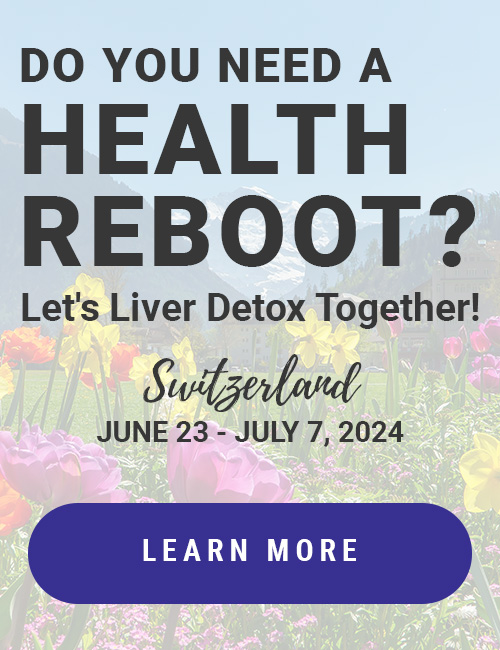Weston Price Foundation versus The China Study
A yahoo group I belong to, “Natural LDS Women,” is having a debate about the “science” of the Weston Price Foundation, versus The China Study.” A recent poster said that with scientific “facts” so conflicting, you really just have to pray about it and go with your gut. “LDS” means Mormon (my religion), and in this post I refer to the famous before-its-time scripture known as the Word of Wisdom, as I have in other places in my writings, about nutrition:
I rarely have time to respond to yahoo groups even though I follow some threads, but this morning I responded with this posting, about the two research titans, about research in general, and about navigating the “science” versus “gut” decision making tension:
The first people to tell you there are no scientific “facts” are scientists themselves. We have evidence, but not proof. Good science is hard to come by. In the modern world, the vast majority of our “science” (not even qualifying as “facts”) is bought and paid for. That is, the science looks objective but is funded by someone with a profit motive.
Industries paying for lots of research such as pharmaceuticals, dairy, meat, or processed foods (four huge industries that are very powerful) may have sifted through a lot of data and cherry picked whatever makes them look good, for promotion and publication.
Studies begin to become compelling when they are valid and reliable, the two highest standards in research. Briefly, VALID means the study truly measures what it purports to measure. (If a study saying wine consumption reduces heart disease is valid, it will have controlled for the fact that wine drinkers are more affluent than beer drinkers–so they also eat more fruits and vegetables. That’s hard to do!) RELIABLE means the research study was repeatable with consistent results.
The China Study is one of the most reliable studies I have ever encountered. Colin Campbell (PhD, Cornell) conducted the original animal studies, but other researchers all over the world copied them with the same results, over and over. Then he found similar findings in humans–in a huge study of 6,500 people spanning now 30 years (so the study is also longitudinal–that’s expensive and very rare in research, but one of the ways to achieve validity).
When you see a study saying oatmeal prevents heart disease, you don’t run out and buy all the oatmeal you can and knock every other good thing out of your diet. You watch and wait until you see lots of OTHER studies showing the same thing. You have a healthy skepticism about what you read–open minded, keen eye looking for more data. You are waiting for further light and knowledge. And you use your common sense. (For instance, in this case, “Well, I know that UNREFINED oats have bran and germ–vitamins, minerals, and fiber–so it’s good. But other grains have the same thing, so I’ll keep using them, too.”)
Vitamin D is one of those issues. The first time I read a study that those getting more sun get vastly less cancer, I was intrigued but skeptical. Now, more and more research is coming out with consistent conclusions, and I am beginning to believe strongly that getting more Vitamin D is critical to the strength of our immune systems, to our ability to minimize disease risk, to our ability to build and maintain bone mass. And it’s hard to get enough D in places with long winters, or for people who aren’t outside much–without supplementation. It has given me pause, since I have not been much of a fan of taking vitamin supplements in the past. Now that it’s cold here in Utah, I can’t get sun. I took a Quest Diagnostics baseline test during my peak of sun exposure in July, and now I’m supplementing with Vitamin D tablets and will test again in Feb. or Mar. I want to know if my synthetic Vita D consumption actually is utilized in my own body.
Double blinded, placebo-controlled studies are the best. Peer reviewed articles in journals are the best. Even they are not foolproof, though. Plenty of flawed research has been published in the most prestigious journals of the world. Studies that have had to be pulled back when their flaws are revealed. Good research is extremely hard to achieve. It’s meticulous, it’s difficult to isolate one factor, and above all, it’s time consuming and expensive.
This is not the place to go into why I vastly prefer the more recent, more thorough work in The China Study to the much older, much more flawed, much more biased work the Weston Price Foundation has done.
But let me say this, briefly: the findings of China Study match the LDS Word of Wisdom that we discuss in this yahoo group and are a fan of. Campbell’s studies weren’t meat eaters versus vegetarians. They were meat eaters (20%, matching the Standard American Diet in that respect at least) versus eating meat sparingly, in times of winter, cold, and famine. (Language culled from D&C 89, The Word of Wisdom.) Following the Word of Wisdom wins–with more than 200 statistically significant findings. (That means that the margin of error is NOT the reason for the finding.)
Yes, pray and receive revelation to guide your journey through what is admittedly a CONFUSING path in nutrition and health. But also be smart, savvy, educated consumers of information. Some research–though NONE of it qualifies as “fact”–is better than others.
That’s my $0.02. With that and a quarter, you can buy a phone call.
Robyn
GreenSmoothieGirl.com
Posted in: Whole Food














I’m glad I found this discussion! It has been on my mind for 2+ years, ever since I was nursing my infant (now 2-1/2). I actually had, “The China Study” with me at the hospital, trying to finish it so I can move on to a book about toddlers! (I had read the baby books with my first, never got to the toddler books.)
I just read WAP’s article and it had mentioned that the Okinawan’s diet is “very greasy” and high in pork. Can anyone verify? We hear so much about the Okinawans and how they live such long lives due to greens, seaweed, fermented soy, etc. But never have I heard about them eating a greasy pig-pork from head to toenails – except in this article.
Another thing I want to say is that a 100% plant-based diet does not work for infants, toddlers or nursing mothers. For this, I am grateful to WAP. I won’t go into my kids’ entire health history, but through trial and error, I learned that MEAT is very good for my kids’ health.
My son had eczema since he was 3 months’ old and because I was nursing him, I watched what I ate so carefully that I was practically wasting away from all the food eliminations trying to get rid of the eczema. I ate very little meat, thinking it was hard to digest and eczema/skin eruptions are related to poor digestion. I didn’t eat eggs, b/c many babies are allergic to eggs. I didn’t drink milk, b/c my daughter was allergic to milk at birth (casein, not lactose). So my only protein sources were grains and legumes, I ate lots of oatmeal. Yet the eczema continued. Also my breast milk supply was dwindling, even though I was a dairy queen at first, had bags of milk stored in the freezer that could feed another child; still, by 9 months, my son weaned himself, because the milk just did not satisfy him. I won’t go into a debate with LLL about whether or not it’s me, the mother, who quit first – NO, my son quit on me, I wanted to nurse him a full year, for fear of not knowing what my alternatives were if I didn’t. So I found WAP/Sally Fallon. I gave him the homemade liver formula, alternating with the goat milk formula except I used Meyer’s instead of raw (no raw goats in my area).
The first week was nothing short of a miracle – my son’s eczema was cured. My son was at peace and I did not read Sally Fallon’s article, “A Breastfeeding Saga” until recently (her kids did better on raw milk than breast milk too). One major mistake I made was adding powdered whey (Mt. Capra), b/c what followed was a total nightmare that didn’t end for weeks… My son’s eczema was the worst it had ever been and I had never felt so helpless as a mother/human being. I cried with him all the way to the pediatrician’s, all throughout his antibiotics course and not knowing what the cause was (did a powdered whey “experiment” on him much later, which revealed the cause), I stopped making the homemade formula and gave him Alimentum.
To make a long story bearable, it wasn’t until my son had a very ugly cold sore that I realized he was missing LYSINE in his mostly-vegetarian diet. At that point, I suffered through more sleepless nights researching and decided to put him on anti-fungal diet (bodyecology.com), which practically eliminated all grains and re-introduced more meat. At that point, he THRIVED. He was talking more, his struggle to walk picked up speed and he was much more interested in his surroundings.
Then one night we were out in a Brazilian part of town with nothing but churrascaria (all-U-can-eat meat buffet), my son ate more meat that night than he normally eats in one week. I went home worried to death that his face would break out severely, but when I went to get him in the morning, absolutely NOTHING bad had happened. His face was still clear as ever. Meat is not the enemy!!! At least not for eczema.
Grains & sugar are the enemy, especially unsprouted processed grains. Nuts are bad for my son too, unless I pre-soak them. He also does not like strawberries or berries of any kind. Right now I mainly focus on making sure he has enough FAT, load up on DHA, flax, cod liver oils, avocados, let him have chicken skin (some saturated fat is good for kids) and his face is fine. For him, the best protein seems to be meat, especially grassfed beef with lots of green veggies.
Sorry this is a long post. Thanks for reading…
I just looked up my son’s blood type – he’s A+, which means he should do well on a vegetarian diet. But he doesn’t. So I don’t subscribe to the blood type diet and I question its scientific validity, given that a high percentage of Asians are B+ (which says dairy is ok/good) and a lot of Asians are lactose-intolerant.
I’m just curious if you ever ended up re-checking your vitamin d, and what the results were.
Thanks!
I was also wondering how/where/how much it costs you are able to check all your health stats (I know you’ve mentioned checking your bone density. Can you check your cholesterol at home accurately?) I’d love to be able to monitor the health of my family at home, but I don’t know how.
To amcgrrl –
I have a 7 month old and we are trialing the liver based formula. It’s too long of a story to tell you why – it has been a very difficult 7 months feeding wise for our wee one.
So, what were your ultimate thoughts on the liver formula for your son? I left out the whey and lactose.
She is primarily on an Rx formula, sadly, and has only had a few ounces here and there of the liver formula. I guess at times I’m just afraid of it – but more afraid of the ‘dead’ formula she is drinking day in and day out. I figure she only has a few more months of this – but i long to give her something better and I hope the liver/bone broth formula will suffice.
Any thoughts?
Thank you!
DON’T leave any ingredient out of a baby formula recipe! All the ingredients are there for important reasons. Leaving any out would cause a nutritional deficiency and could be very very dangerous for a baby.
WAPF’s Liver formula has scary high levels of vitamin A. The other formulas seem ok, but I’d use pasteurized milk – it has the name nutritional value as raw and is safer.
I take a lot of what WAPF says with a grain of salt. But I read a great book called Good Calories, Bad Calories by Gary Taubs. It was very eye opening in terms of how studies are flawed, how scientists report what they want to report regardless of what the study shows (they just ignore or write off the data that doesn’t fit into what they want to say), how the prevailing ideas about health create a strong bias in study results, etc. From what I remmeber, the China was one such study that he discussed the flaws. I don’t *think* he is affiliated in any way with WAPF. I liked Taubs because he has a science background and actually understand the studies, unlike the average Joe who tries to read them.
I will look for that book, Eileen. Most of the criticism I’ve seen on the China Study is by WAPF people or Denise, the college student. It seems to focus mostly on this principle, “Hey, it’s not just meat–it’s processed food too.” Well, yes–and Campbell would be the first to acknowledge that processed / altered foods are a huge culprit in the mess America finds itself in now. But throwing red herrings up to avoid looking at the protein overdosing we’re doing is unwise, too.
The China Study, as well as works by Dr. Neal Barnard, Dr. Esselstyn. Dr. Ornish,Dr. McDoughall, and countless others verify the superiority of a plant based diet. These men are not vegans trying to prove a plant based diet is the best. They are doctors and scientists who , in some cases, were trying to prove that animal foods were important for optimal health. They found the opposite to be true.
I am not Mormon, but I know that Mormons respect science, and have a tradition of a healthy lifestyle.Weston A Price is a deceptive organization, that really does not represent the original intentions of its founder.Recent research has shown that primitive people ate mostly plant based foods, not meat, and certainly not the milk of another species!Osteoporosis occurs more in societies that eat dairy products than those that eat plant foods. Every;thing we need for optimal health is in plants, with the possible exception of B12, which is easily supplemented with fortified foods, or a B12 tablet occasionally. My B12 levels are above normal, and I eat only plants.
Vegetarian: old Coast Salish Native American word for “lousy hunter.”
I recently read Denise Minger’s original critique (one of many): “The China Study: Fact of Fallacy” (http://rawfoodsos.com/2010/07/07/the-china-study-fact-or-fallac/), which was far from saying, “Hey, it’s not just meat-it’s procesed food too.” She took the raw data from the China Study, the same analyzed by Campbell, and showed in detail many instances where his claims do not align with the available data. She also indicated a handful of variables that should have been taken into consideration in determining results. I don’t know her, but referring to her as “the college student” implies a lack of respect for her efforts due to her youth. One doesn’t need years of credentials behind him/her to be an intelligent, critical thinker. Because of this, I actually see her in a position to have less potential bias than either the WAPF people or Campbell’s camp. Her work is worth looking at for anyone interested in seeking truth (and learning to sort through data). Here’s a list of the ten pieces she’s put together on The China Study: http://rawfoodsos.com/the-china-study/, including her 36-page formal analysis.
The scriptures are full of positive references to both milk and butter, signs that the Lord considers them good and nourishing. And most often, scriptural references to meat are also positive, in some cases condemning those preaching abstention from meat. I am hard-pressed to believe that our Godgiven bodies should thrive on a diet that must include manmade tablet supplementation to function optimally.
Thank you Nonie for your comment, I agree about Denise. You don’t need a PhD in nutrition to critically review the data of the China Study. Just a good analytical mind.
If “Hey, it’s not just meat-it’s procesed food too” was the real message of Campbell’s book, then why mainly write against animal proteins. And a question one may raise is, what should I cut out first, and what is worst. That’s why I feel the vegan propaganda partially influenced the China Study book.
I have given this subject so much thought and research, as well as trying both styles of eating. Here is what I have concluded. People who want to eat meat always point out D&C 49:19. People who don’t think it’s right always point to D&C 89. Which is right? They seem to be opposite, and yet come from the same book of scripture. I think D&C 49 is not talking about meat, but about other animal products. And they are to be had in abundance. When it is talking about meat, it specifically says “flesh” such as D&C 89. That said, I think most people feel better when they drop dairy. Even raw milk dairy properly cultured gave my family troubles. So what’s the deal there? Well, China’s study’s biggest factual problem is actually with dairy. So maybe what I concluded is wrong? (That dairy/eggs are good, meat is sparingly).
Well, guess what? Properly prepared wheat also gave my family lots of troubles. But wheat specifically is said to be for man. But dang, it causes major bloating in all of us. So what’s the deal?
People can’t digest dairy well, and THAT makes it cause disease. So a study like the China Study that is a study of MODERN (i.e. compromised guts) people would show dairy causing problems. But people who actually had healthy digestive tracts (the primitives) could handle it just fine. (Besides the China’s Study’s use of pasteurized milk, I’d say the gut issue is just as big of an influencing factor).
But, I have to say, generally people I see who follow WAPF don’t LOOK as healthy as people who follow The China Study. (Paleo people DO look as healthy, though I am not advocating that; I think it has more to do with people’s inability to digest wheat/grains because of compromised gut issues). I don’t really believe WAPF. Well, I do, but I don’t. On p. 492 of Nutrition and Physical Degeneration Weston Price himself said that wheat is one of the best foods for you and full fat dairy. And people need as much as an egg a day or a piece of meat the size of an egg a day for protein. THAT sounds like the word of wisdom (both D&C 49 and 89 are both scripture, remember), much more than either the China Study OR WAPF. So my family works on healing our guts doing some pretty crazy things, we eat proper dairy, lots of it, and we go easy on the meat. That’s my interpretation.
I would also like to say that I don’t know anyone who went from Weston Price to China Study way of eating, but I see the reverse all the time. Usually someone has felt quite sick on vegan eating, and they find great health on Weston Price diet. I.E. nutritional deficiencies over long periods of vegan eating. for some people. I interpret this to be that I don’t think people need loads and loads of meat like WAPF (not Weston Price, though) seems to say, but saying that meat is bad for you point blank is also not true. It’s not just to keep us from starving to death. Probably most people do need some.
And finally, as a last observation, when I followed the China Study, I felt kind of self-righteous. I saw others as not following the Word of Wisdom when they ate meat. I don’t feel like that on a Weston Price Diet at all. I don’t look at people eating meat in disgust thinking they are cruel to animals, etc. I overall feel much less judgmental. It’s just food, whatever you eat, and not a sin, and not murder, etc. I’m not saying everyone thinks this way, but I have definitely gotten that feel from some friends I have who still do China Study. I feel like they are judging me. I mean, I KNOW they are judging me, even though they are so nice, I can see it in their faces, as they watch me put a piece of meat in my mouth. If anything, for some personalities who might have the temptation to judge, perhaps it is good to eat meat every now and then just to help you get off your high horse.